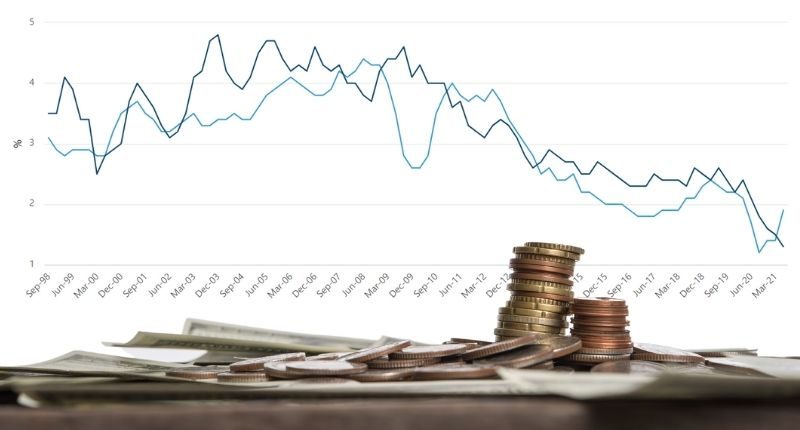- Wages are growing +1.7% a year, but house prices are rising at +18.4%
- Seasonally adjusted wage price index rose 0.4%, following two quarters of 0.6% growth
- Public sector wages grew at slowest annual rate of growth (+1.3%) since 1997
With house prices rising eleven times faster than wages, one is beginning to wonder – who is going to be able to buy all these properties?
No doubt, those already ‘in’ the market have the luxury of being able to trade up (or down), but for those trying to get in, it is becoming increasingly difficult.
Only yesterday, The Property Tribune reported on the latest home loan commitments data which showed a slowing in activity, due to booming house prices.
The latest ABS income statistics show that over the past year Australian wage growth was only +1.7%, well below the annual property price rise of +18.4%.
Property prices have been rising $1,900 a week in 2021, the fastest rate since the 1989 financial year. (And we all know what happened shortly after that, with the ‘recession we had to have.’)
In the June 2021 quarter, the seasonally adjusted wage price index rose 0.4%, following two quarters of 0.6% growth.
As can be seen, the wage growth trend is falling, which is putting home ownership further away for many.
Quarterly wage growth, seasonally adjusted, 1997 –

“Apart from a few isolated examples of skills shortages placing pressure on employers to meet expected market rates, the private sector wage growth recorded over the quarter (0.5%) was generally subdued.”
Michelle Marquardt, Head of Prices Statistics, ABS
“Public sector wages rose by 0.4% for the third consecutive quarter, dampened by on-going negotiations around new enterprise agreements and the postponement of scheduled wage rises,” she said.
Compared to June quarter 2020, private sector hourly wage rates rose 1.9% in June quarter 2021. Meanwhile, the public sector recorded its lowest annual rate of growth (1.3 per cent) since the series commenced in 1997.
Relevance to property
It’s not just an affordability issue. The RBA has consistently said it will not raise interest rates until wage growth and inflation hit their +2% to +3% growth band.
On current information, we are some way from that being an eventuality. Low interest rates look like being here to stay, which could kick house prices along for some time yet.








